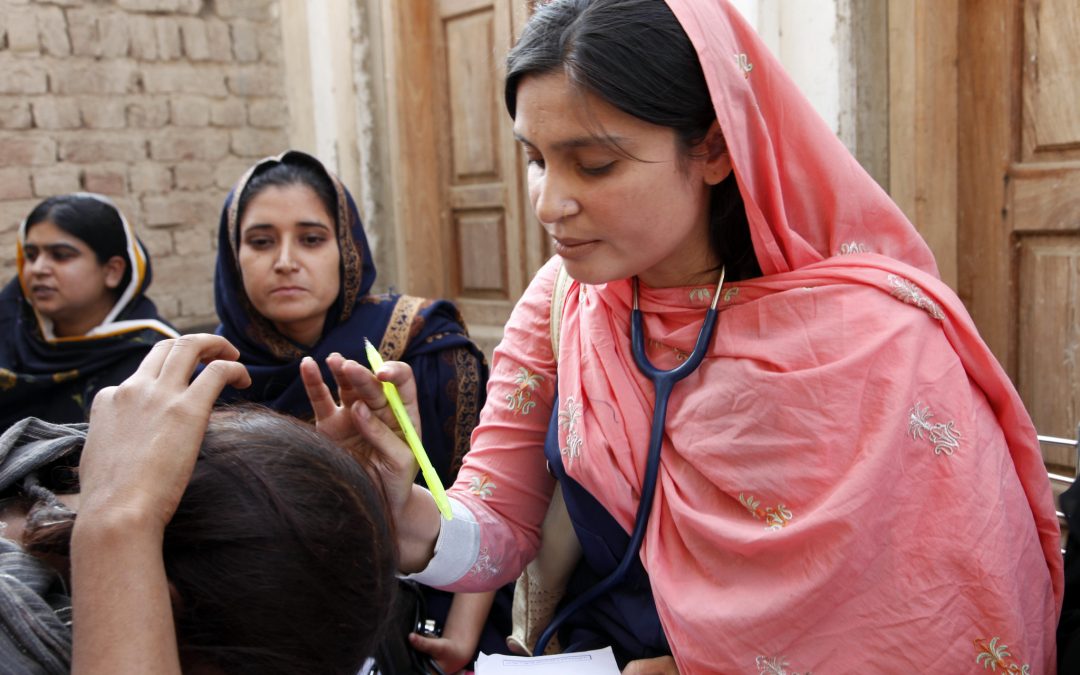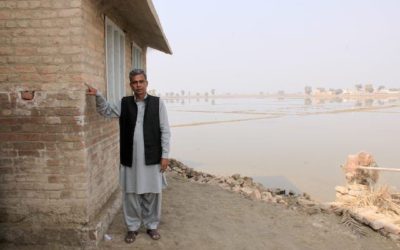Why governments will eventually, reluctantly back migration as climate adaptation
Why governments will eventually, reluctantly back migration as climate adaptation
Alex Randall
Alex is the programme manager at the Climate and Migration Coalition
This article was first published in Le Monde Diplomatique
Last year 23 million people were forced from their homes by disasters linked to the weather and climate change. As the planet warms (which inevitably it will) this number will probably go up. This has led many international agencies like the UN Migration Agency and even the World Bank to promote the idea of ‘migration as adaptation’.
The idea is born out of two insoluble problems. Stopping people moving as a result of disasters and climate change is impossible: disasters have always forced people to move.
And, as climate change begins to bite, there are some places that will simply become impossible to protect.
The second problem is that unplanned, rushed, chaotic human movement usually results in tragedy. There are compelling humanitarian reasons for preventing forced displacement.
Get our weekly briefing
You are now signed up

Online Q&A: Covid-19, climate change and migration: 14th May at 3pm BST
Online Q&A session14th May at 3pm BST14th May at 3pm BSTHow does a city in lockdown deal with a sudden climate-driven disaster like a typhoon? The measures needed to cope with a sudden episode of displacement - such as mass emergency shelters - are exactly the...
Chaotic displacement
Governments dislike chaotic displacement for less altruistic reasons: it’s expensive, messy and often raises difficult questions about security and immigration. This is where the idea of ‘migration as climate change adaptation’ comes in. The basic idea is this: it’s better that people move in an organised, planned and dignified way, rather than wait to be forced to move later in a chaotic way. Rather than waiting for people to be displaced, people will be helped to adapt to climate impacts by migrating.
The optimistic vision is that in highly vulnerable places people would be helped to migrate; existing labour migration would be harnessed as a way of getting people out of dangerous places. People in such areas might be trained in skills they need to move and find work in safer locations. And it could be cheaper to help people with the costs of moving, than try to help them adapt to worsening conditions where they are. Infrastructure investment and job creation could be focused on the places people would be moving to.
Online Q&A: Covid-19, climate change and migration: 14th May at 3pm BST
Online Q&A session14th May at 3pm BST14th May at 3pm BSTHow does a city in lockdown deal with a sudden climate-driven disaster like a typhoon? The measures needed to cope with a sudden episode of displacement - such as mass emergency shelters - are exactly the...
Key resource
Climate, migration, neoliberalism
The lecture sketches out a history of neoliberalism, and then looks at how the culmination of this political thinking is reflected in the policies that are being created to address climate change and migration.
Climate migration finance
That’s the optimistic theory. The reality is far more fraught. In spite of support from global development banks and some states, it’s unclear how any of this might be agreed and paid for.
Several things would need to happen. Although the idea is to harness existing labour migration, it won’t be free. Or even cheap.
The idea is that globally, millions of people are trained, assisted to move, and infrastructure like housing and transport keep up with this migration. Most of the migration will be taking place in the world’s poorer countries, and most of the money will have to come from the world’s richer countries.
Negotiations around financing climate change adaptation are already fraught, and adding another item to the list would require a huge outlay of political capital from the states and agencies that want to see it happen. Though migration as adaptation is sensible, it sounds alarm bells for governments, rich or poor.
Key resource
Online Q&A: Covid-19, climate change and migration: 14th May at 3pm BST
Online Q&A session14th May at 3pm BST14th May at 3pm BSTHow does a city in lockdown deal with a sudden climate-driven disaster like a typhoon? The measures needed to cope with a sudden episode of displacement - such as mass emergency shelters - are exactly the...
Related video
Climate, migration, neoliberalism
The lecture sketches out a history of neoliberalism, and then looks at how the culmination of this political thinking is reflected in the policies that are being created to address climate change and migration.
Public opinion
Public opinion in developed countries is not currently in favour of more migration. Let alone spending taxpayer money on helping people migrate.
The idea of spending money on climate change adaptation isn’t popular either. This puts the idea of migration as adaptation in an even tougher position: it means spending money on helping people migrate.
So is the idea dead in the water?
Probably not. The arguments for migration as adaptation are compelling, even to governments who fear what headline writers might say about them.
Politicians will eventually realise that organised migration is better than chaotic displacement. Financing it is soluble too. Climate adaptation money must be spent efficiently, and helping people move short distances to get them out of danger may represent one of the most efficient ways of adapting to climate change.
Related video
Climate, migration, neoliberalism
The lecture sketches out a history of neoliberalism, and then looks at how the culmination of this political thinking is reflected in the policies that are being created to address climate change and migration.
Climate, migration, neoliberalism
The lecture sketches out a history of neoliberalism, and then looks at how the culmination of this political thinking is reflected in the policies that are being created to address climate change and migration.
Climate change and migration: predictions, politics and policy
Get to grips with one of the defining issues of the 21st Century – how will climate change re-shape migration across the world. Join a free, 100% online course to investigate this essential topic
Event: Migration and displacement at the climate talks
How are migration and displacement being dealt with at the international climate change talks? Find out more with our online event
Event: Climate change and Migration 101. 4 December
Get to grips with the links between climate and the movement of people
Event: hot wars- Climate change, armed conflict and security. 15 November
What do we know about the links between climate change and conflict? Will life on a hotter planet be on with more armed violence?
Briefing: climate change and migration. 24 October, London
An evening briefing exploring the links between climate change and migration. Find out more and book places. 24 October, London
Workshop on climate change and migration. 16 October, London
Workshop on climate change and migration. A half-day session exploring the links between climate change and migration. 16 October, London






